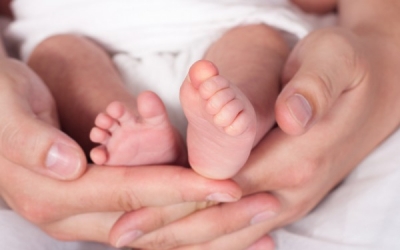- Latest news▼
-
12:27, April 23 Appetite: Scientists found out the secret to the appeal of large portions of fast food

-
10:33, April 23 Scientists test new approach to fighting viruses

-
08:38, April 23 Ketamine may help with postpartum depression

-
22:12, April 22 Unhealthy amount of sugar found in baby food products of a well-known brand

-
19:41, April 22 Air pollution puts health of more than 1.6 billion workers globally at risk

-
17:25, April 22 Scientists found baked goods and lack of sleep to be more dangerous than alcohol

-
16:02, April 22 342 cases of measles recorded in Armenia so far in 2024

-
15:29, April 22 BrainStimulation: electrical brain stimulation alleviates anxiety and depression in the elderly

-
08:27, April 22 Cognitively stimulating jobs in midlife could lower dementia risk in old age, study finds

-
20:37, April 21 Environmental Health Perspectives: Microplastics ingested with food and water can spread from the gut to the brain

-
22:41, April 20 Scientists develop new method to safely stimulate immune cells to fight cancer

-
20:46, April 20 Blood test can determine who is at risk of developing multiple sclerosis - scientists

-
18:36, April 20 Next pandemic likely to be triggered by flu - scientists

-
12:16, April 19 Scientists grow human mini-lungs in lab

-
10:23, April 19 JAMA Oncology: Urine test can help rule out high-grade prostate cancer with almost 100% accuracy, study shows

All materials
IVF babies may be twice as likely to develop autism

Babies conceived through IVF may be twice as likely to develop autism, according to new research.
Children conceived using assisted reproductive technology were more likely to develop autism than babies conceived naturally.
Assisted reproductive technology (ART) includes any type of fertility treatment where the egg and the sperm are handled outside of the body, including IVF, artificial insemination and surrogacy.
As The Daily Mail reports, during IVF - the most popular ART treatment - more than one egg is harvested and fertilised, which can lead to multiple births.
Researchers explained they found an association between IVF and autism - but they did not prove that the treatment cause the disorder, according to HealthDay news.
The higher risk of the disorder could be explained by factors such as multiple births and other risks associated with IVF, not the treatment itself, they said.
After taking into account factors such as the mother's education and multiple births, researchers found the increased risk was only seen for mothers under 35 years old.
And they found there was no extra risk of autism for women who gave birth to one child.
This means IVF using a single-egg transfer rather than multiple eggs lowers the chance of a baby developing autism, experts said.
The study involved nearly six million children born from 1997 to 2007.
The team, led by Peter Bearman, a professor of social sciences at Columbia University in New York City, collected data on 5.9 million California births, including 48,865 infants conceived through assisted reproduction, and 32,922 children with autism.
They compared the incidence of autism in births that involved advanced infertility treatment such as IVF and those that didn't.
Professor Bearman said this was the largest study looking at this relationship that has ever been carried out.
The results are not a condemnation of IVF technology, as the study did not prove a cause-and-effect link, he said.
He added: 'There is an association between IVF and autism, but when we control for the characteristics of women who are more likely to use IVF, for example, age and social status, this association is lessened significantly,'
The remaining increased risk is due to factors such as multiple births and complications of pregnancy and delivery associated with IVF, he said.
He added that there was no significant increased risk of the disorder for children of women who gave birth to one child.
He said: 'Knowing that one can largely reduce the risk of autism by restricting the procedure to single-egg transfer is important for women who can then make better informed decisions.'
The research was published online in the American Journal of Public Health.
The news comes after a major study published this week found genetics are the main cause of a child's autism, not lifestyle.
Scientists from King's College London said that, in the average boy or girl with autism, genetics explain up to 98 per cent of the illness.
Controversial research linking autism with the MMR jab has been widely discredited, but more recent concern has focused on the condition being fuelled by environmental factors such as pollution.
Follow NEWS.am Medicine on Facebook and Twitter
- Video
- Event calendar
- Archive
- Most read
month
week
day
- JAMA Oncology: Urine test can help rule out high-grade prostate cancer with almost 100% accuracy, study shows 1185
- Daily Mail: Elderly woman in China gets infected with brain-eating amoeba 1154
- The Conversation: childhood trauma can cause pathological hoarding 1138
- Obesity: exercising before breakfast helps you lose weight faster 1138
- Daily Mail: Satiating food reduces cravings for sweets, nutritionist says 1110
- First Armenian-German Conference entitled “Heart Failure Spring School” 1059
- Scientists grow human mini-lungs in lab 1056
- Why do kids usually recover from COVID-19 more easily than adults? 1010
- Next pandemic likely to be triggered by flu - scientists 618
- Scientists found baked goods and lack of sleep to be more dangerous than alcohol 557
- Blood test can determine who is at risk of developing multiple sclerosis - scientists 509
- Scientists develop new method to safely stimulate immune cells to fight cancer 503
- 342 cases of measles recorded in Armenia so far in 2024 502
- Cognitively stimulating jobs in midlife could lower dementia risk in old age, study finds 486
- BrainStimulation: electrical brain stimulation alleviates anxiety and depression in the elderly 439
- Find us on Facebook
- Poll





